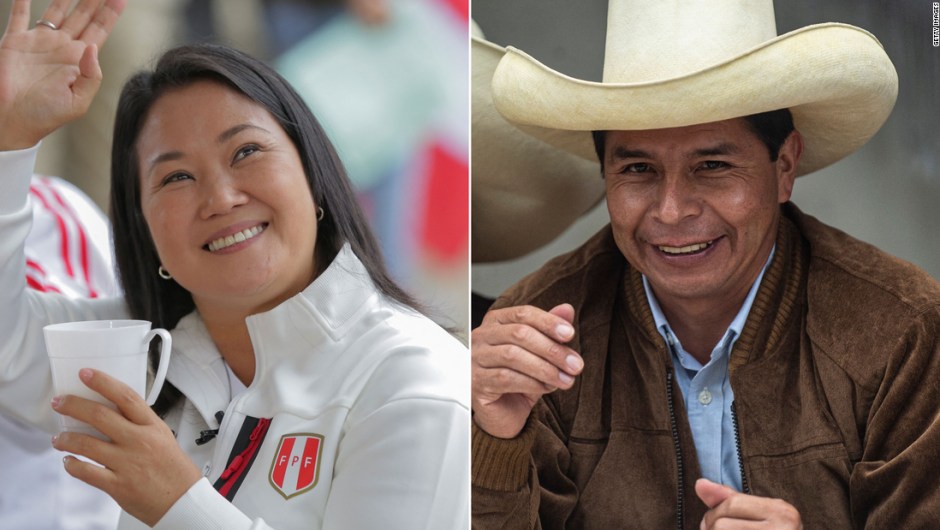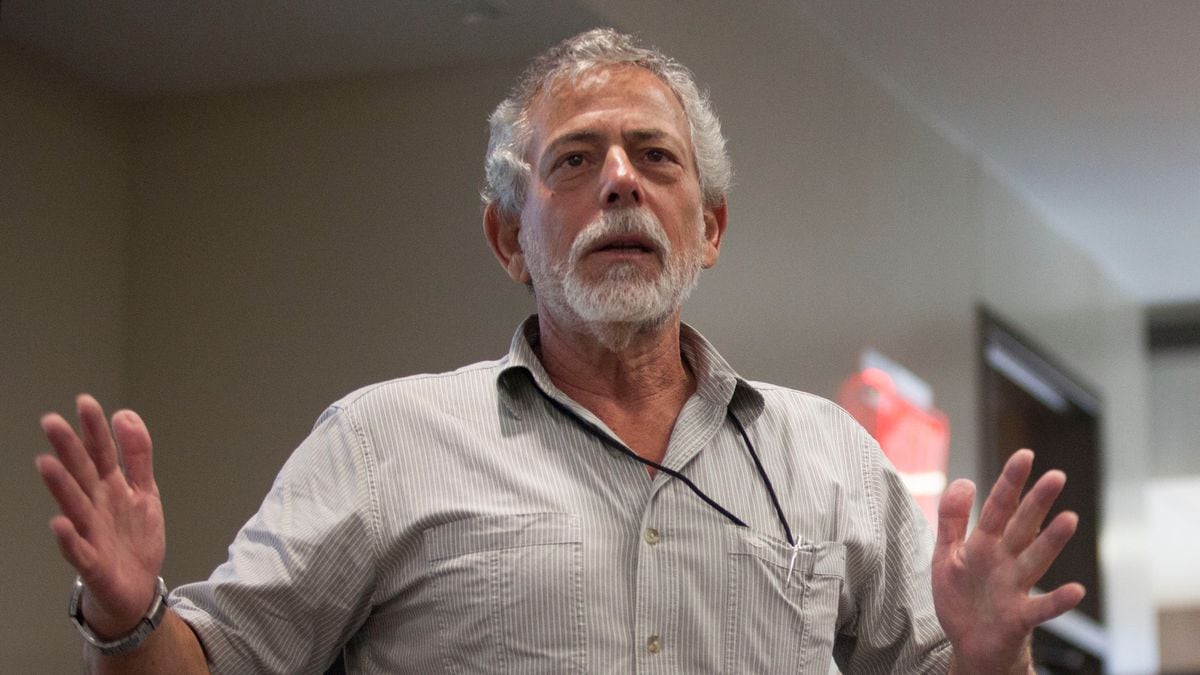Editor's Note:
Carlos Alberto Montaner is a writer, journalist, and CNN contributor.
His columns are published in dozens of newspapers in Spain, the United States and Latin America.
Montaner is also vice president of the Liberal International.
The opinions expressed here are solely his.
(CNN Spanish) -
Mario Vargas Llosa's question, by Zavalita, a character in his extraordinary novel Conversación en La Catedral, was slightly different and included an even more colloquial expression.
He was referring, of course, to the ominous era of Manuel Odría.
The important thing is not the when but the why.
Let's see.
When I write this article, at 5 p.m. on June 9, 2021, Pedro Castillo was ahead of Keiko Fujimori by only 70,000 votes or, in other words, 0.2% of the vote.
But Keiko Sofía can still win, if the votes from abroad reach her for her triumph.
In any case, we must wait for the final result of the count.
Ideally, both contestants agree to accept the opponent's triumph without attempting to use force. In a democracy you lose or win even by just one vote and you have to comply with all formalities. The system does not guarantee that the best govern, but those who get the most votes. It is just a formula to convey authority properly. Otherwise, we must accept the existence of dynastic sovereigns, personal dictatorships, such as Trujillo, or party dictatorships.
The 2000 elections in the United States were very dramatic, precisely because of the electoral closeness of the contenders. Republican George W. Bush won by a scant 537 votes in the state of Florida, despite the fact that Democrat Al Gore had won him in the popular vote, but it was not so by the votes of the Electoral College that, promoted by the state of Florida , favored George W. Bush, 271 to 266.
Fortunately, two solvent researchers, Ian Vásquez, from the Cato Institute, director of the Center for Global Prosperity, together with Iván Alonso, doctor in Economics from the University of Los Angeles, have written an irrefutable allegation that is explained very well from the title: Peru's unprecedented prosperity in 38 charts, to which they add "a variety of indicators about Peru that show the progress that has taken place in the country in recent years and decades."
The analysis of this research, based on absolutely reliable statistics, denies that the appearance of Pedro Castillo in the Peruvian political environment is a product of the "exhaustion of neoliberalism", as the enemies of the market often say, of "growing inequality", or of the "Number of poor", as the ignorant allege. It is not that: in no period in the country's history has Peru's economy grown so much, inequality has been lower, or abject poverty has decreased more intensely.
Why does it seem that half the country wants to go against the path that has brought "unprecedented prosperity" to Peru? In addition to the constant preaching against liberal measures, which has created what is now called an "opinion matrix", in my opinion, this is due to the unclear understanding of what a republic is, a delicate entity that requires the acquiescence of citizenship and the will to place all, or almost all, under the rule of law.
Of course Marxists, and other people who, as I see, seem indifferent to reality, have a great opinion of the state and a terrible judgment of the market, but that also happens in the United States. What does not happen there are military coups to impose a criterion. Fourteen times the military have interrupted the civic life of Peruvians, from the “Mutiny of Balconcillo”, led by the aristocratic José de la Riva-Agüero, in 1823, to Alberto Fujimori, Keiko's father, in a self-coup in 1992. And that is a difference.












